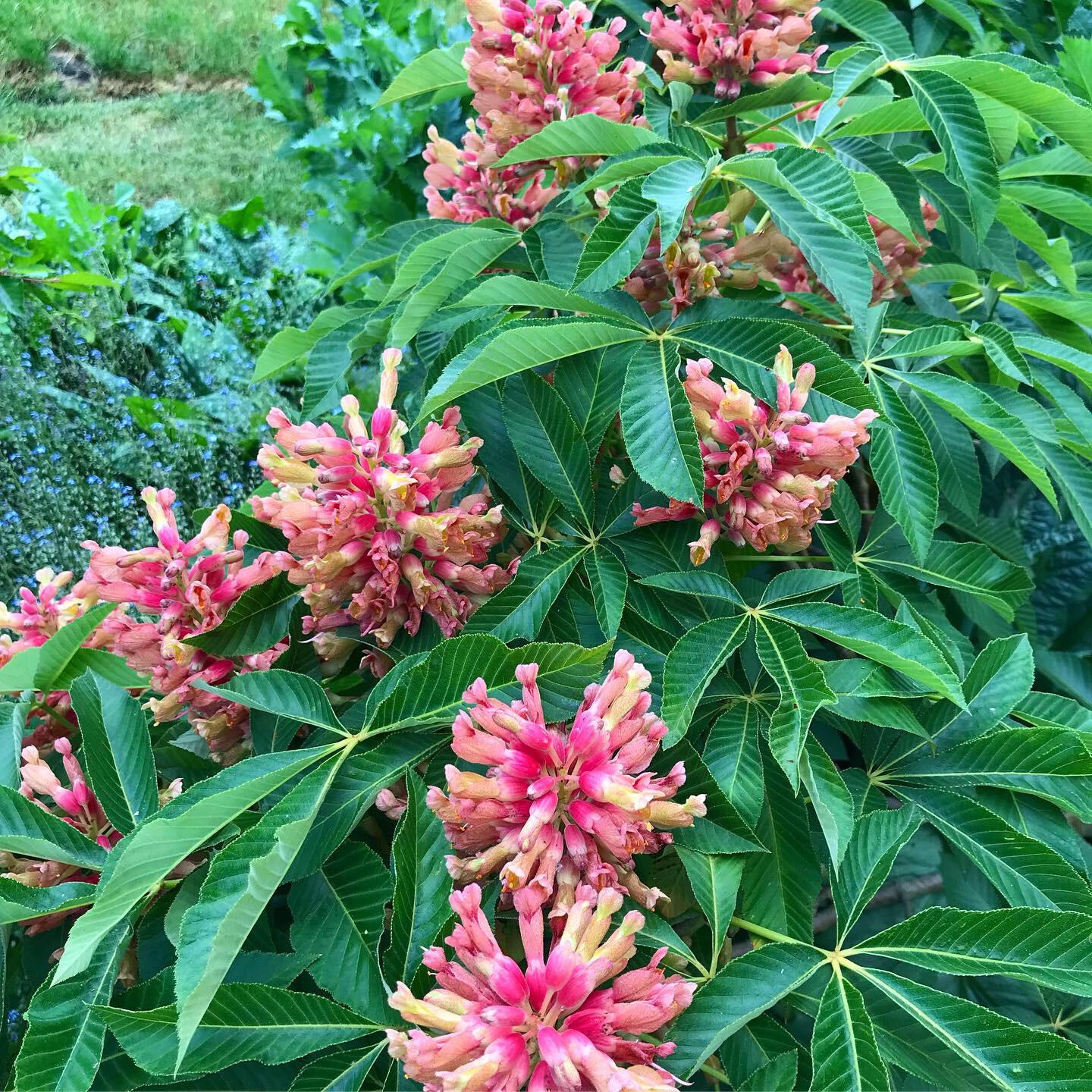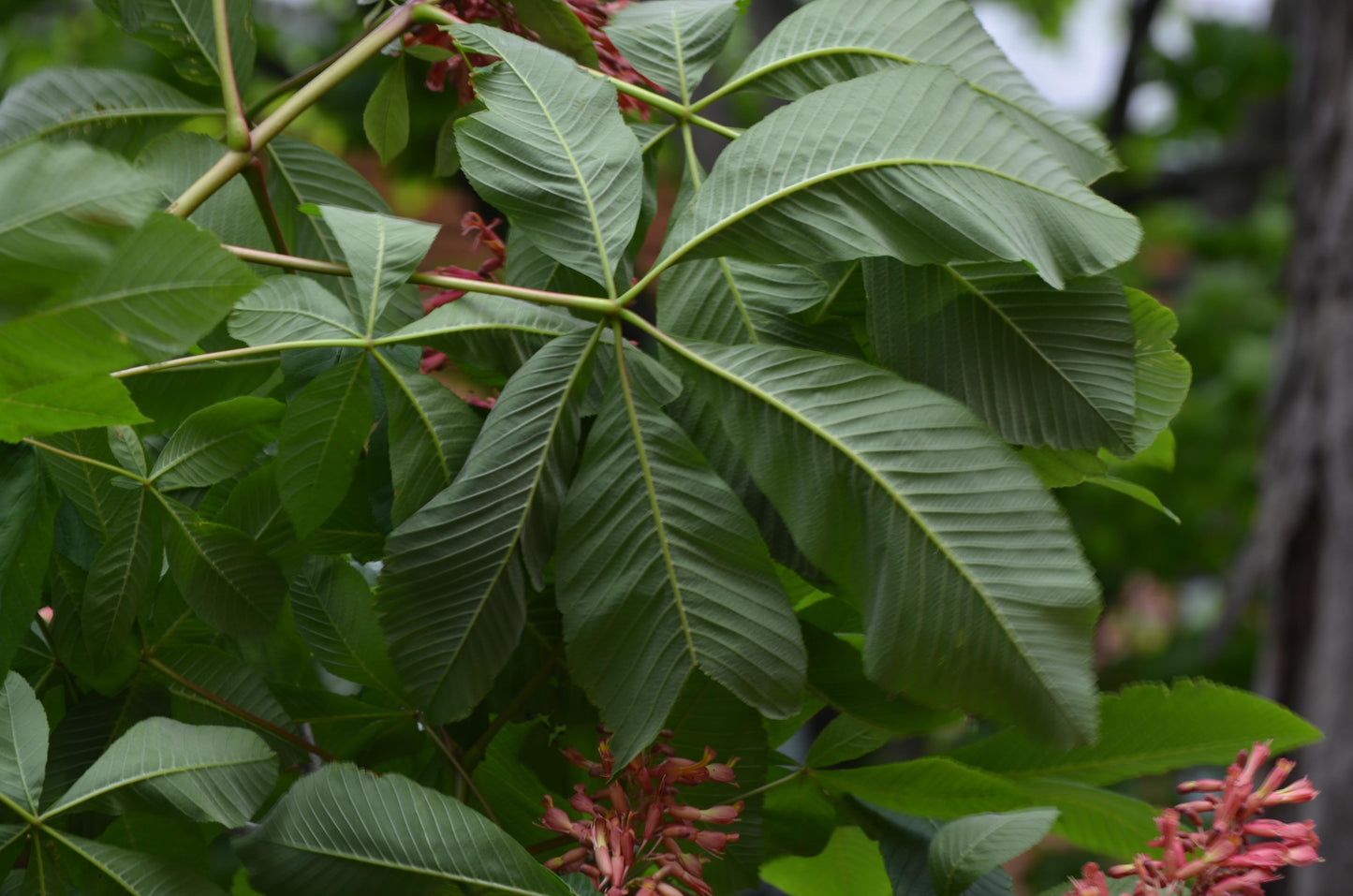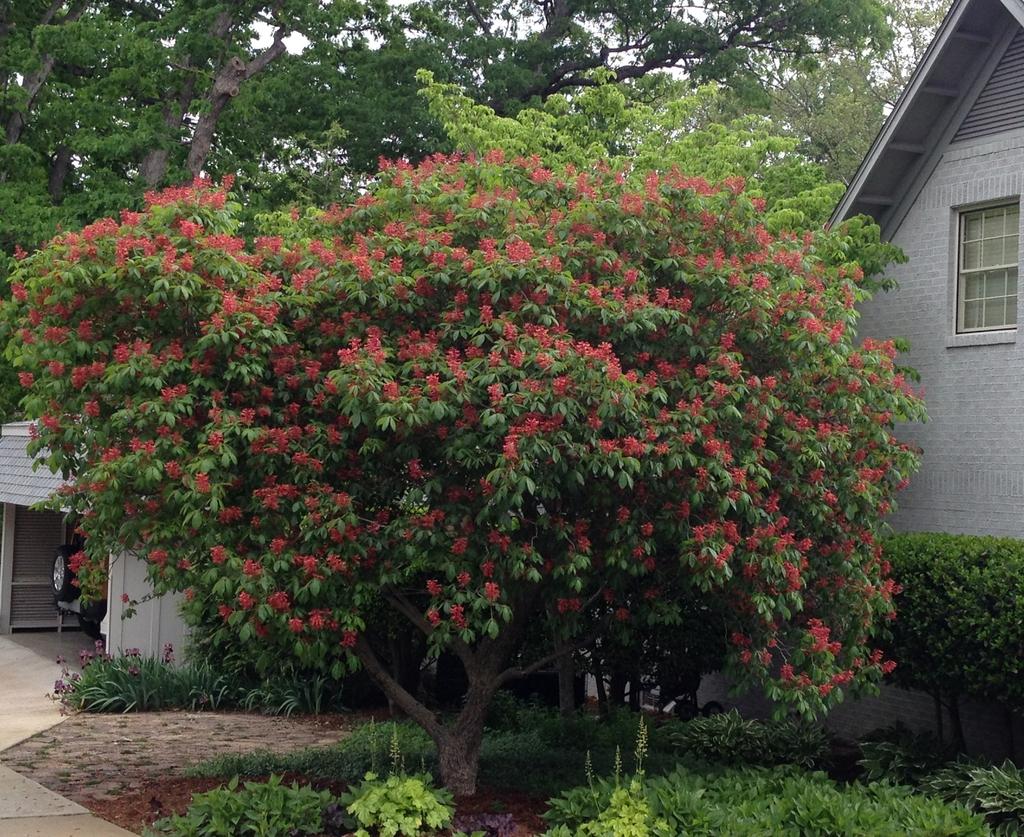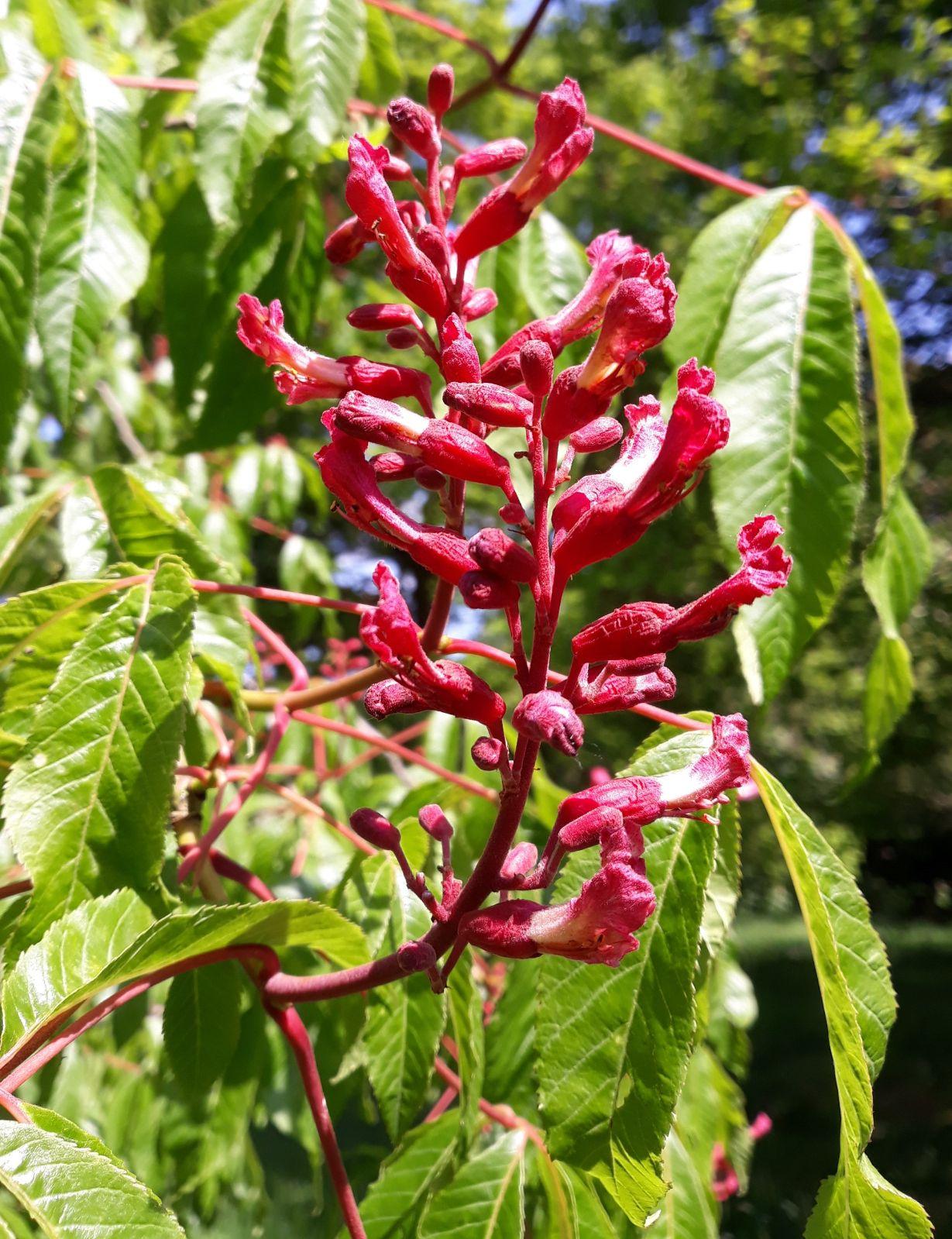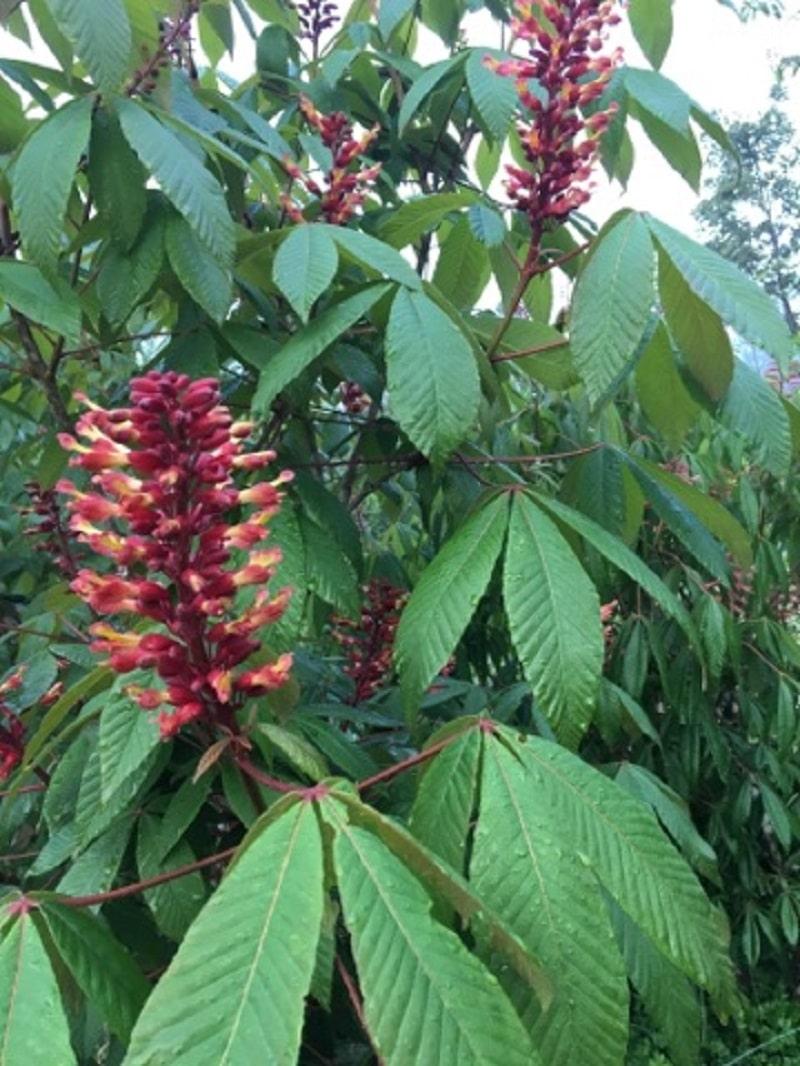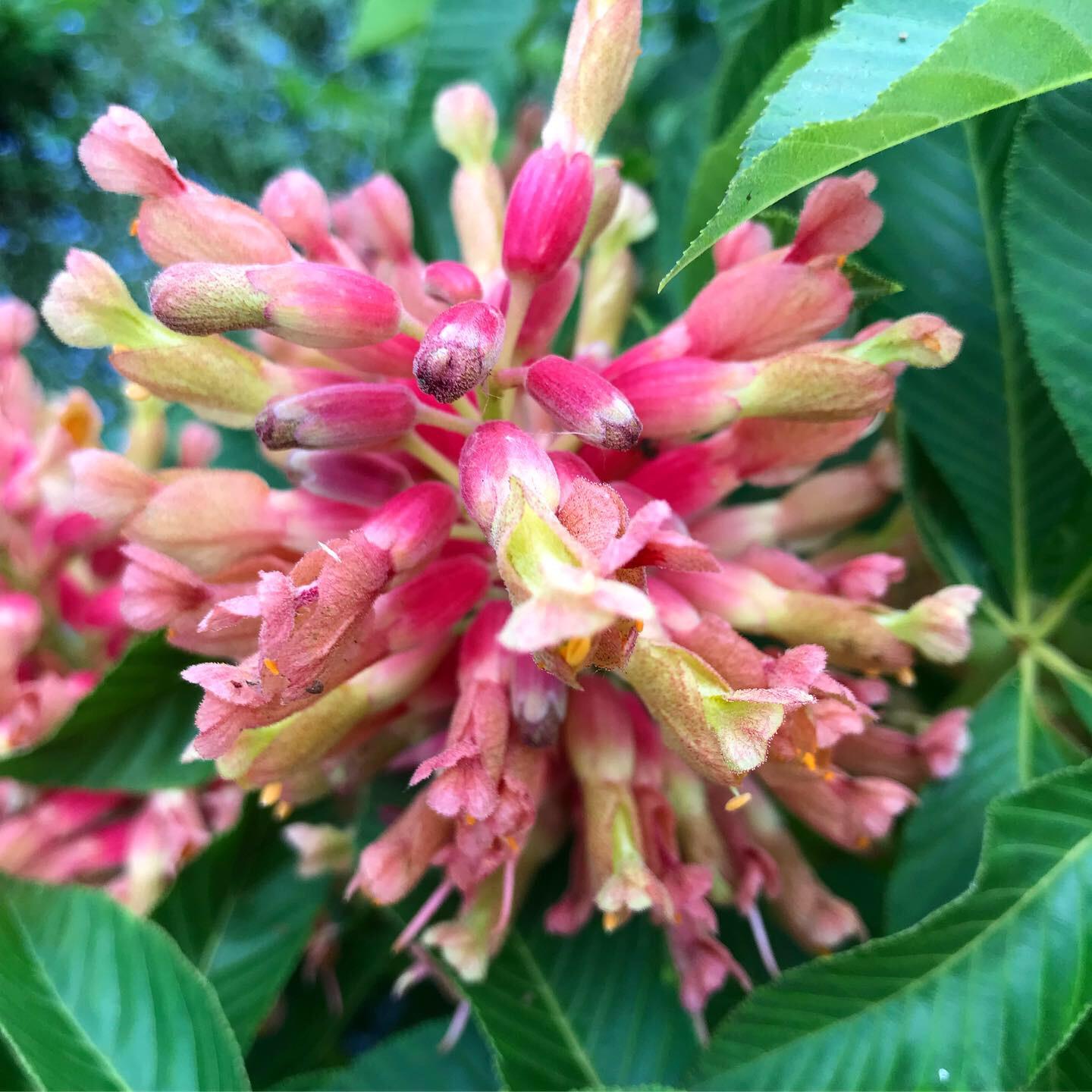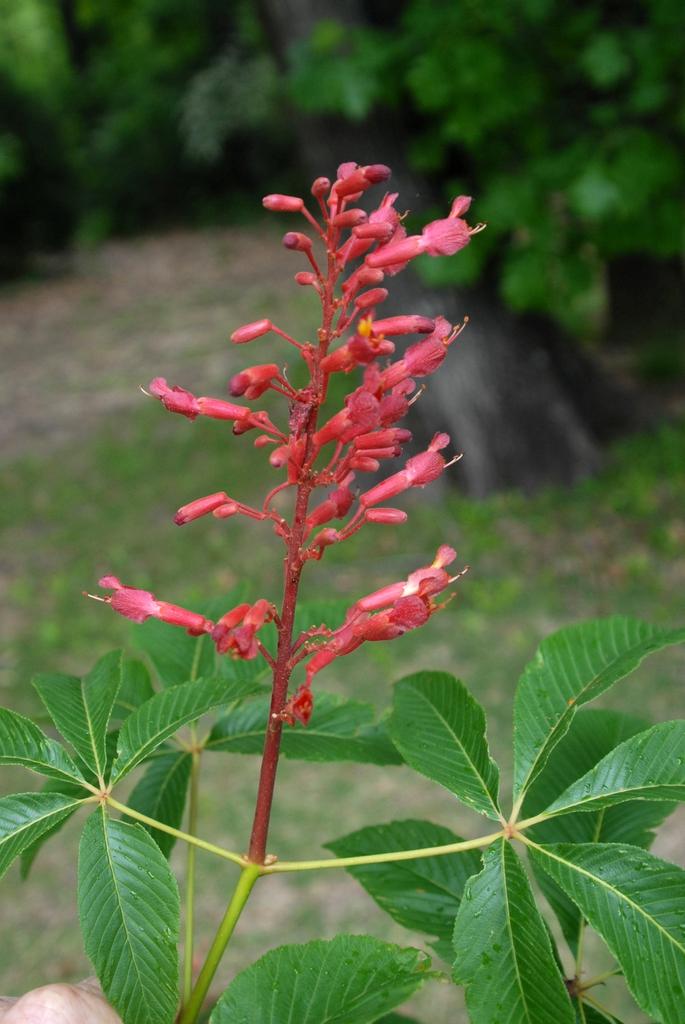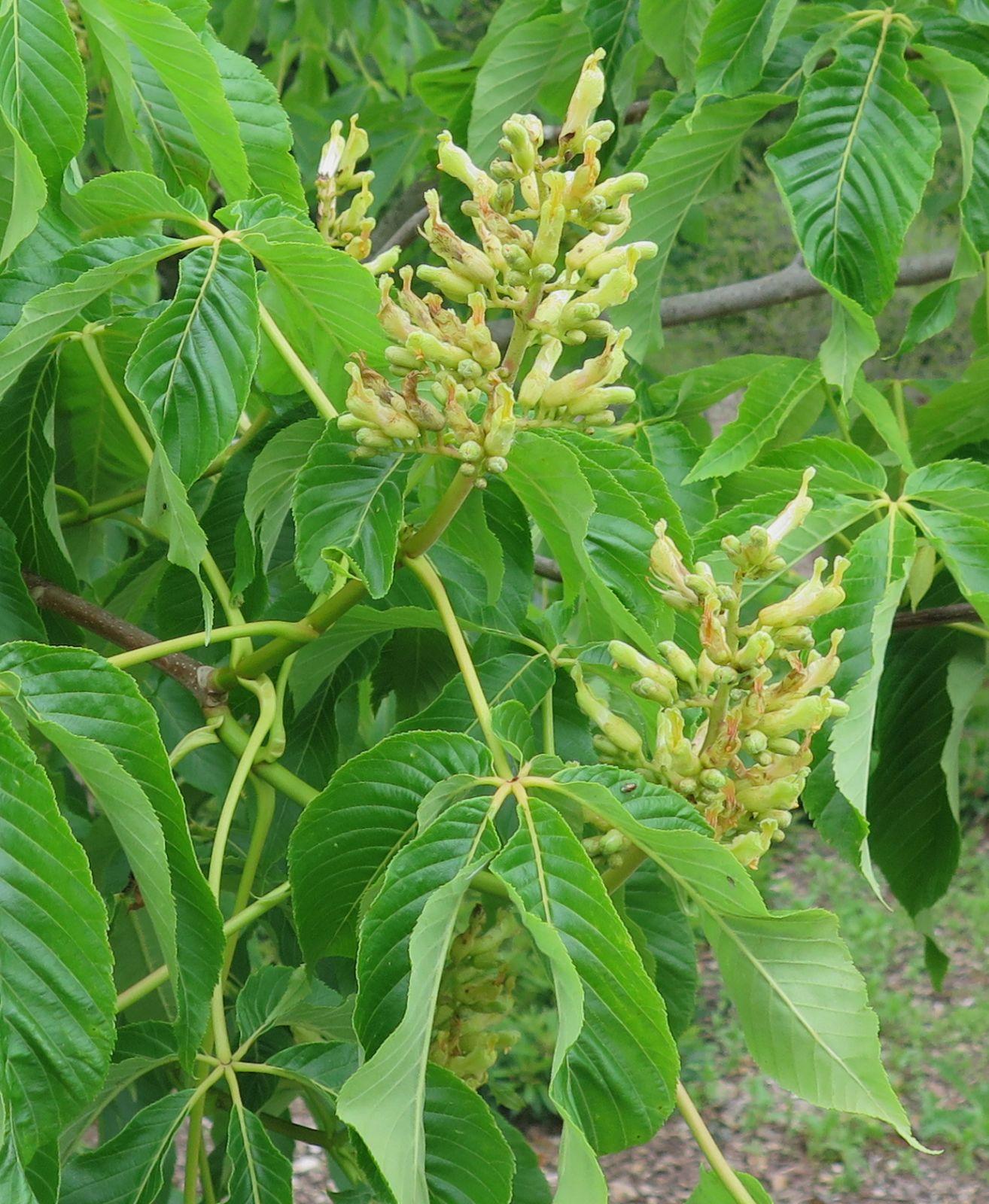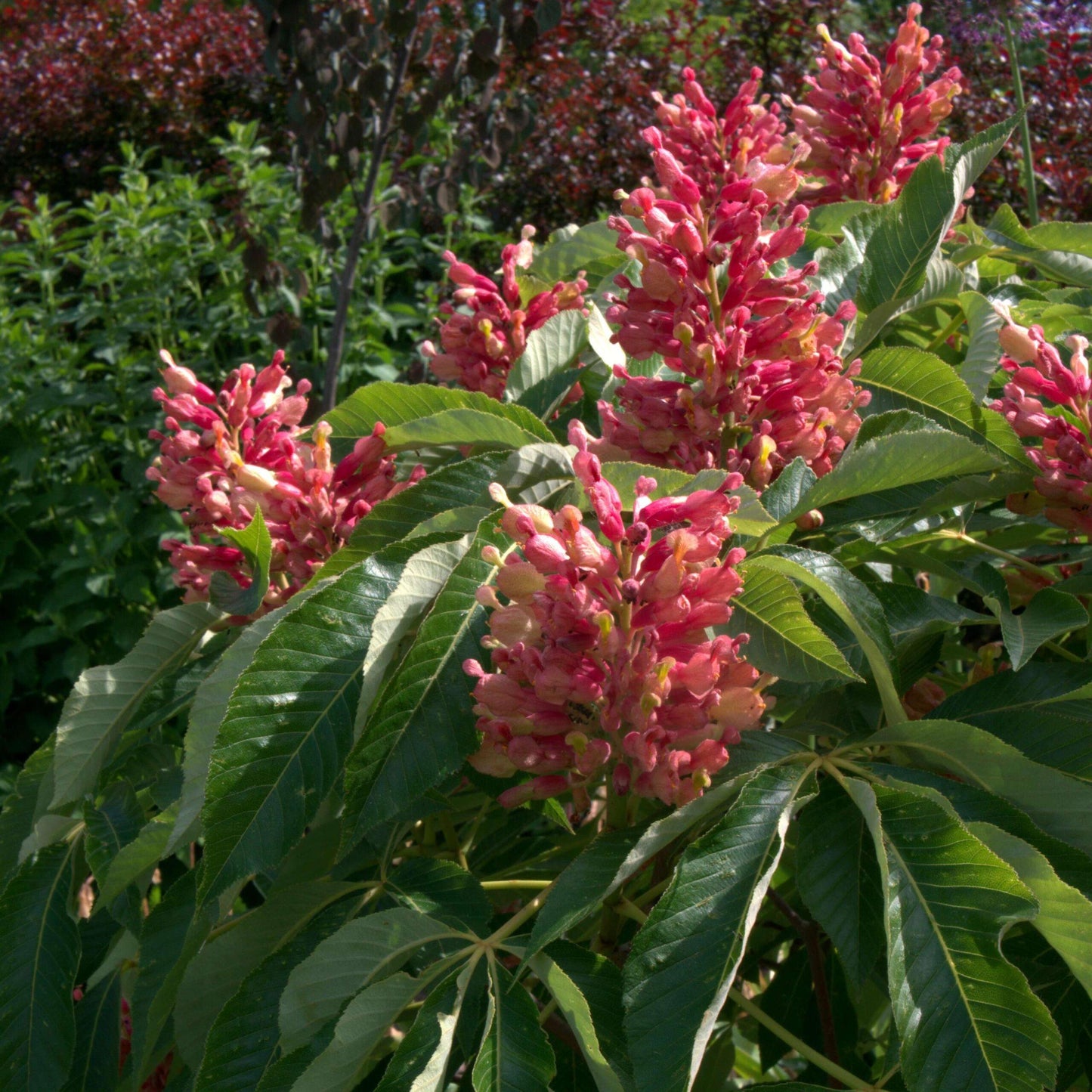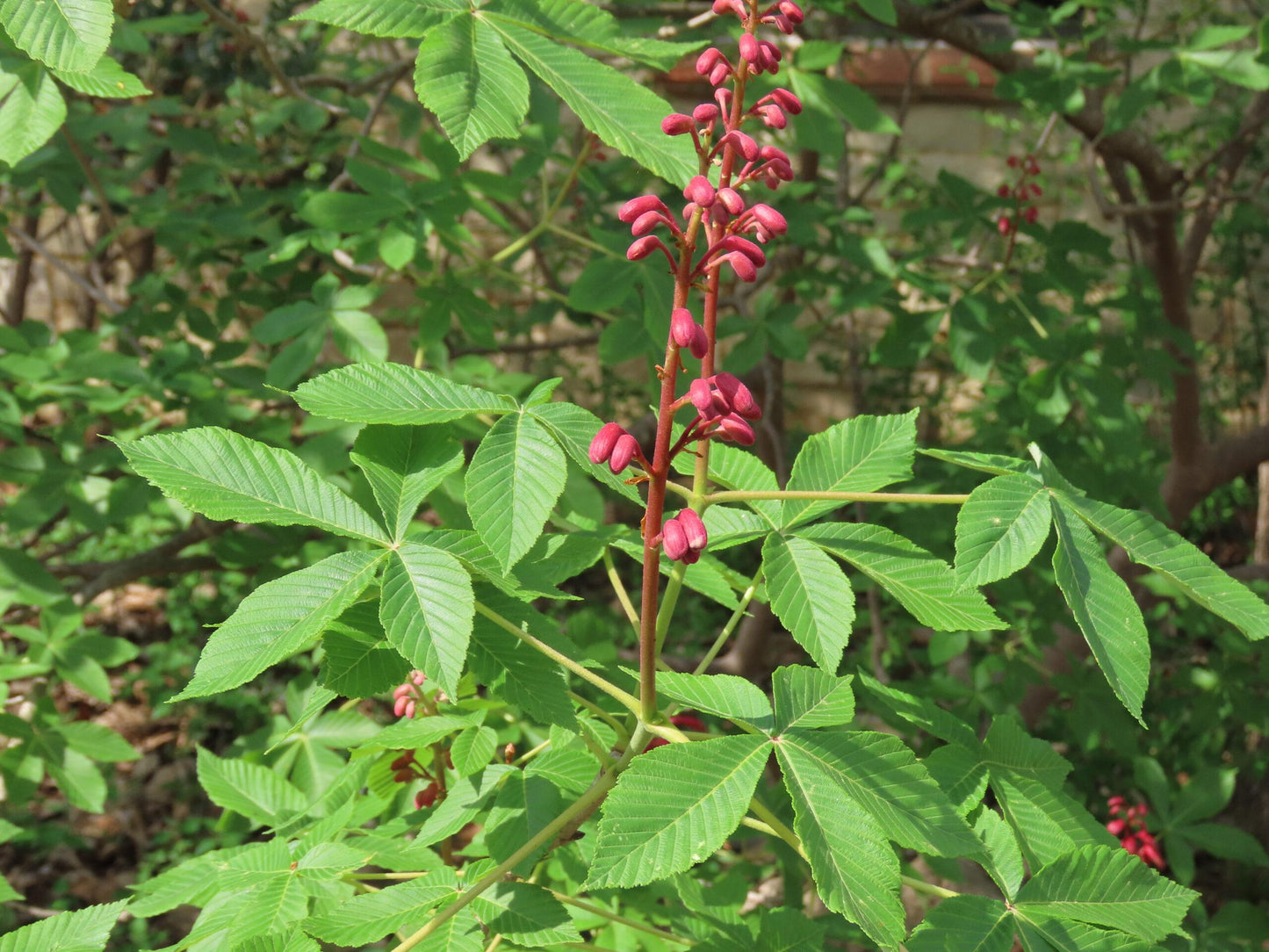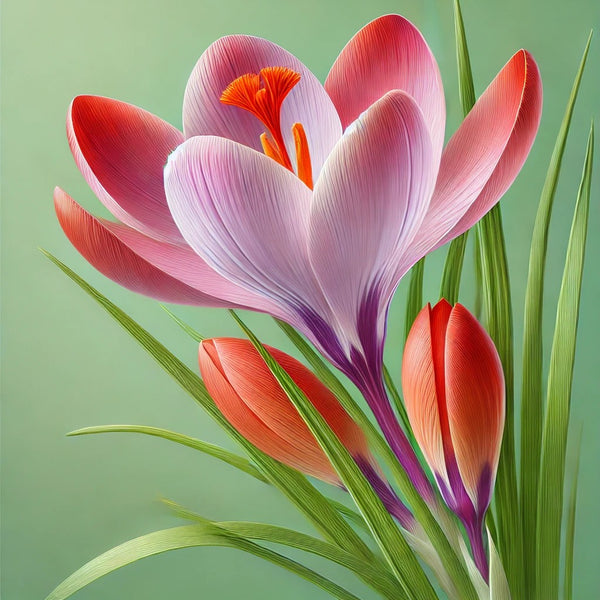1
/
of
19
Aesculus pavia-Red Buckeye-Attracts Pollinators 3/4' h B&B
Aesculus pavia-Red Buckeye-Attracts Pollinators 3/4' h B&B
Regular price
$1,300.00 USD
Regular price
$1,690.00 USD
Sale price
$1,300.00 USD
Unit price
/
per
Shipping calculated at checkout.
SKU:nsf5947-redcrocus
Couldn't load pickup availability
Aesculus pavia
Description
Aesculus pavia, commonly known as Red Buckeye, is a deciduous shrub or small tree known for its striking red tubular flowers that bloom in spring. It is native to the southeastern United States and is appreciated for its ornamental value and ability to attract hummingbirds and butterflies.
Suggested Uses
Red Buckeye is ideal for use in woodland gardens, naturalized areas, or as a specimen plant in a landscape. Its vibrant flowers make it a great choice for attracting pollinators, and it can also be used in large containers.
Plant Details
-
 Botanical Name: Aesculus pavia
Botanical Name: Aesculus pavia -
 Common Name: Red Buckeye
Common Name: Red Buckeye -
 Size & Growth: Typically grows 10-20 feet tall
Size & Growth: Typically grows 10-20 feet tall -
 Hardiness Zones: 4-8
Hardiness Zones: 4-8 -
 Foliage Type: Deciduous
Foliage Type: Deciduous -
 Bloom Time: Spring
Bloom Time: Spring -
 Growth Rate: Moderate
Growth Rate: Moderate -
 Light Requirements: Full sun to partial shade
Light Requirements: Full sun to partial shade -
 Attracts Pollinators: Yes, especially hummingbirds and butterflies
Attracts Pollinators: Yes, especially hummingbirds and butterflies -
 Indoor Friendly: No
Indoor Friendly: No -
 Container Friendly: Yes, in large containers
Container Friendly: Yes, in large containers -
 Deer Resistant: Yes
Deer Resistant: Yes -
 Pet Warning: Toxic if ingested
Pet Warning: Toxic if ingested -
 Fragrant: No
Fragrant: No -
 Cut Flower: No
Cut Flower: No -
 Grows Well With: Other woodland plants like ferns and hostas
Grows Well With: Other woodland plants like ferns and hostas
Care Tips
-
 Planting Instructions: Plant in spring or fall, ensuring the root ball is level with the soil surface.
Planting Instructions: Plant in spring or fall, ensuring the root ball is level with the soil surface. -
 Soil Moisture: Prefers moist, well-drained soil
Soil Moisture: Prefers moist, well-drained soil -
 Soil Type: Tolerates a range of soil types, but thrives in rich, loamy soil
Soil Type: Tolerates a range of soil types, but thrives in rich, loamy soil -
 Humidity: Average humidity levels are suitable
Humidity: Average humidity levels are suitable -
 Pruning Instructions: Prune after flowering to maintain shape and remove dead wood
Pruning Instructions: Prune after flowering to maintain shape and remove dead wood -
 Winter Care: Mulch around the base to protect roots in colder zones
Winter Care: Mulch around the base to protect roots in colder zones -
 Planting Depth: Plant at the same depth as in the nursery container
Planting Depth: Plant at the same depth as in the nursery container -
 Fertilization: Fertilize in early spring with a balanced fertilizer
Fertilization: Fertilize in early spring with a balanced fertilizer -
 Special Care: Monitor for leaf scorch in hot, dry conditions
Special Care: Monitor for leaf scorch in hot, dry conditions
Share
